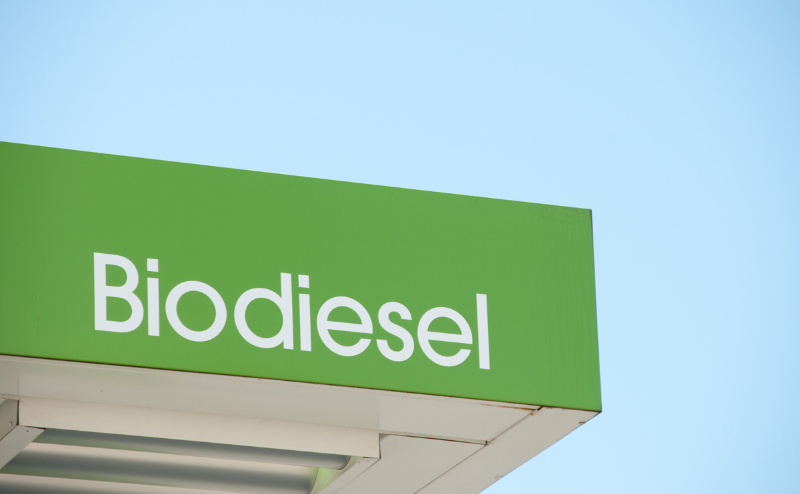Expert Witness – Biodiesel
The role of an expert witness in biodiesel-related litigation is highly specialized, with a limited pool of qualified professionals. These experts provide essential knowledge and insights in the courtroom, helping attorneys, judges, and juries understand the complex science and issues at hand. Given that the term “bioeconomy” covers a wide range of areas, including bioenergy, biofuels (such as biodiesel), renewable chemicals, biotechnologies, and feedstocks, one of the first challenges for legal counsel is to identify the appropriate expert(s) for the specific matter. For instance, an engineering issue requires a different skill set compared to a chemical issue, and both differ from the expertise needed for economic or damage assessments. Therefore, it is crucial for counsel to determine their needs early on and ensure that the professionals they consider have the necessary background, education, and experience in the specific technical or scientific area relevant to the case.

Expertise and Analysis:
Expert witnesses in biodiesel litigation have extensive backgrounds in various scientific and technical fields, such as chemistry, chemical engineering, and environmental science. These professionals bring a wealth of knowledge and expertise to the courtroom, where their skills are essential for dissecting and explaining intricate details related to biodiesel and biofuel production.
In-Depth Knowledge of Biodiesel Processes
One of the primary areas of expertise for these witnesses is the detailed analysis of ethanol and biodiesel production processes. They understand the intricate steps involved in converting feedstocks into biofuels, including the chemical reactions, catalysts, and technological innovations used to optimize production. Their ability to break down these processes into understandable components is invaluable for legal teams and the court, especially when complex technical issues are at the core of the litigation.
Environmental Impact Assessment
Beyond the production processes, expert witnesses in biodiesel litigation are adept at assessing the environmental impacts associated with biofuel production and use. This includes evaluating the carbon footprint, greenhouse gas emissions, and potential pollution resulting from biodiesel operations. Their assessments help determine whether companies comply with environmental regulations and standards, providing crucial evidence in cases where environmental harm or compliance is disputed.
Safety and Risk Evaluation
Safety is another critical area where these experts contribute significantly. They evaluate the safety measures and protocols implemented in biodiesel production facilities, identifying potential risks and hazards. Their assessments cover a wide range of factors, including the handling and storage of raw materials and finished products, the potential for accidents or spills, and the overall safety culture within the organization. By providing expert opinions on these matters, they help ensure safety standards are upheld and that any lapses are thoroughly examined in court.
Clarifying Complex Technical Matters
The ability to clarify complex technical matters is perhaps one of the most important contributions of expert witnesses in biodiesel litigation. Their expert opinions and testimonies can demystify the scientific and technical jargon that often accompanies biodiesel production and environmental impact assessments. This clarification is crucial for building strong legal arguments, as it helps attorneys present their cases more effectively, and helps judges and juries make informed decisions based on a clear understanding of the facts.
Legal Support and Cross-Examination:
At
LEC Partners
, we offer hundreds of services in virtually every area of the bioeconomy. For example, our Bioenergy Section handles ethanol, biodiesel, cellulosic ethanol, sustainable aviation and renewable jet fuels, marine biofuels, biomass power, renewable natural gas (RNG), biogas and other landfill gases, renewable diesel, Fischer Tropsch Diesel, syngas, gas-to-liquids (GTL), Combined Heat & Power (CHP), biobutanol/isobutanol, bio coal, biochar & activated carbons, torrefied biomass, pyrolysis oil, DME, fuel additives, wood pellets, and more.Although only a tiny part of what these experts do, most are available to serve as expert witnesses. As with any good expert witness, our specialists always provide impartial and unbiased results. Each of these experts has undergone in-house training on their role in litigation. They are familiar with Daubert qualification standards and understand the rules of evidence and civil procedure. Before accepting employment, we ensure that the experts have the specialization necessary and have done a complete check for possible conflicts.
LEC Partners
has over 180 experts that can help navigate your bioeconomy needs. If you need assistance with your wastewater project(s), please Contact Us.See also: Hiring and Expert Witness in Bioeconomy Litigation
Have some questions?
Not sure where to start?
Let's start a conversation. We're here to help you navigate
the bioeconomy with confidence.
